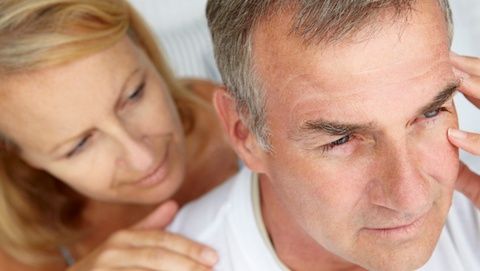
Although more prominent in men, hair loss does affect both men and women and our hormones play a key role. Hair follicles are programmed to perform on average between 25 and 30 cycles, throughout life. When a person suffers from baldness, or androgenetic alopecia, the cycles of the hair growth and loss accelerate. Initially, it is due to the hormones that attack the follicles as a poison and accelerate the pace of the growth phase. The hair is forced to go into rest phase (telogen) faster, not leaving the hair follicle enough time to make good quality hair.
It is then a vicious circle, the cycles are shorter and shorter, the hair of lesser and lesser quality. In the long run, the cycles are exhausted, and the hair does not grow again. We discuss how hormones impact hair loss for men and women and the various solutions available for consideration.
If you suffer from hair loss, answer these 3 questions to discover the best treatment option for you.
The Impact of Hormones
Androgenetic alopecia is recognised as loss of hair that occurs in a distinctive pattern, also known as male / female pattern hair loss or male pattern baldness. For approximately 90% of men and women who suffer from loss of hair, the cause is related to changing hormone levels, a trait that is inherited from your parents. The hormones involved in androgenetic alopecia are called androgens.
For Men
The male sex hormone, DHT (dihydrotestosterone), is an androgen responsible for giving men their male characteristics. It is also considered to cause hair follicles to miniaturise. Increased levels of androgens shorten the growth phase (anagen) of the hair and delays the start of new hair growth if you carry a genetic marker / trait. At the same time, a proportion of the follicles shrink in size and produce vellus hairs – barely visible hairs with no pigment.
For Women
The most common cause of scalp hair loss in women, just as in men, is androgenetic alopecia. Additionally, thyroid imbalances, pregnancy, post-childbirth and menopause can all cause hair loss in women due to changing hormones levels, or dropping oestrogen levels. Some triggers (hormonal changes) are temporary and once corrected, hair growth returns to normal, however some cases can be ongoing and progressive.
Women with loss due to androgenetic alopecia usually do not develop true baldness in the patterns that occur in men, but rather diffuse thinning over the entire scalp, with more noticeable areas at the back or the front, occasionally involving the hairline.
If you are concerned about thinning hair, you should seek professional advice from a hair loss specialist. In most cases, female hair loss can be effectively treated, however self-diagnosis is not recommended.
Seek Specialist Advice
To find out if your loss is due androgenetic alopecia, a hormonal imbalance, or something else, we recommend you consult a hair loss expert. Receiving a correct diagnosis from a hair restoration professional and discussing preventative options and solutions can help you to take control of your hair loss.
Gro are the hair restoration specialists. Simply click on one of the buttons below to book a consultation or ask a question. Alternatively, you can give Gro a call on 1300 787 563.
For more information, you can visit a Gro clinic in Sydney, Brisbane or Melbourne, or Gold Coast or call 1300 787 563.












